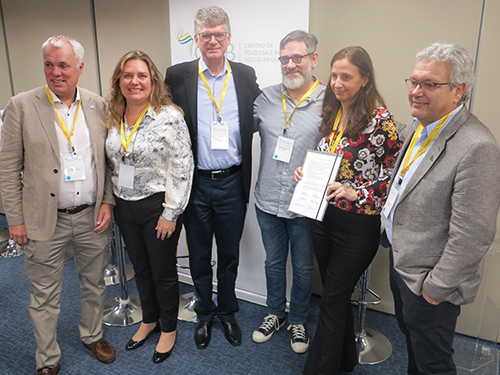A group of Brazilian researchers launched in September, during the Sweden Brazil Innovation Weeks 2019, the Brazilian Aerospace Research and Innovation Network (BARINet), a network to meet the technological challenges of the aerospace industry in Brazil.

BARINet was created with the objective of promoting collaboration and cooperation among its members and with national and international actors, with the purpose of expanding the excellence of Brazilian research in the aerospace sector and its contribution to innovation.
“The creation of this network is a movement long anticipated by Brazilian researchers, and is now being carried out, motivated by recent meetings promoted by CISB,” explains Emília Villani, a researcher and professor at the Aeronautical Technology Institute (ITA). “The purpose is to contribute to collaboration between Brazilian aerospace researchers and to increase the interaction between academia and industry, so that research developed at Universities contributes to innovation in the aerospace sector,” she explains.
The launch of BARINet involves the proposal of a multi-institutional collaboration, with professor-researchers Fernando Catalano (USP), Carlos Cimini (UFMG) and Victor Juliano De Negri (UFSC), as well as Emilia Villani (ITA).
BARINet’s concept combines matches with SARC, the Swedish Aeronautical Research Center, a project launched in Sweden in 2018, with the model adopted by RNC, the National Combustion Network, which is in Brazil since 2002. SARC is a strategic collaboration of universities and companies from Sweden which carry out research and education in the aeronautics field, started by Innovair and funded by Vinnova, the Swedish innovation agency. The SARC was created by three professors from leading universities conducting research in aeronautics in Sweden, and is a result of the interaction between these professors in the context of the Swedish-Brazilian collaboration program.
At the launch of BARINet, its proposal and work plan for the first two years were presented. “This is the moment to introduce BARINet and broaden the participation of the researchers involved, so that we can begin to identify the competencies and needs in each area of activity,” says Emília.




